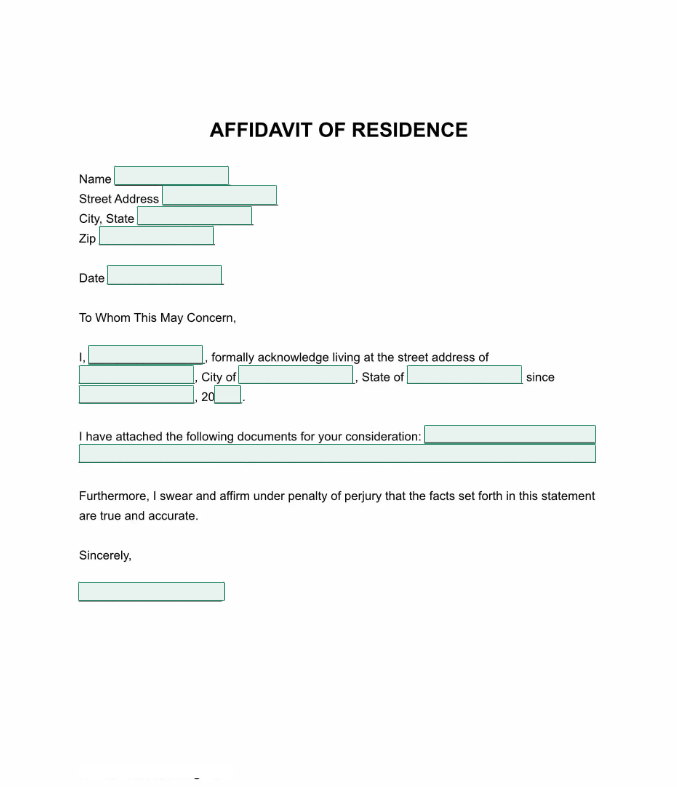Affidavit of Residency Form
Whether you're a student, a tenant, or need to prove your place of residence for any reason, understanding and correctly filling out an affidavit of residency is crucial. To download an affidavit of residency form for free, click the button given below. This document is essential for verifying your residential address and fulfilling various legal and compliance requirements.
Save time, avoid headaches, and ensure compliance effortlessly with current version of Affidavit of Residency Form. With our streamlined process, you'll have your form in hand within moments, giving you the peace of mind to focus on what truly matters – your business.

Understanding the Form
Stay Compliant, Stay Secure: Secure Your Affidavit of Residency Today
Are you tired of endless paperwork and bureaucracy when it comes to forms like this? It's frustrating and time-consuming, isn't it? Spending precious hours navigating through confusing websites, waiting in long queues, or worse, risking penalties for non-compliance. But what if there was a way to bypass all that hassle? Imagine having your downloadable affidavit of residency at your fingertips, ready to download instantly with just a click. The Affidavit of Residency form, updated for the current year, serves as a declaration of your residential address.Whether you're a student registering for school, a tenant in a rental agreement, or need to prove your residence for any other reason, providing an affidavit of residency is often a requirement.After downloading the affidavit of residency PDF, make sure to follow the instructions carefully to avoid errors that could delay your processes. By providing a correctly filled affidavit of residency, you ensure smooth transactions and compliance with legal requirements.How to Fill Out an Affidavit of Residency
Instructions for the Affidavit of Residency
In the upper section, individuals are required to input their personal details, including their full name, date of birth, and current residential address. In the subsequent section, the individual completing the affidavit must declare the duration of their residency at the provided address and may need to include the names of other residents if applicable. The final section of the affidavit necessitates a signature and date, often in the presence of a notary public. Once the form is filled out, it should be submitted to the requesting party or organization and must be completed in its entirety. A new affidavit of residency may be required if there is a change in your residential address or if the document needs to be updated for annual requirements. It is crucial to ascertain the necessity of filling out an affidavit of residency specifically, as opposed to any other type of legal document. This form is tailored for verifying your place of residence for various purposes.Frequently Asked Questions
The affidavit of residency is primarily used to prove an individual's place of residence for legal, educational, or financial purposes.
An affidavit of residency is a legal document used to verify an individual's current residential address. It is often required for school registration, rental agreements, and other legal processes.
You can download the affidavit of residency form for free from reputable sources like our website or from legal document providers.
Individuals who need to prove their residential address for school, housing, or legal reasons are typically required to fill out an affidavit of residency.


